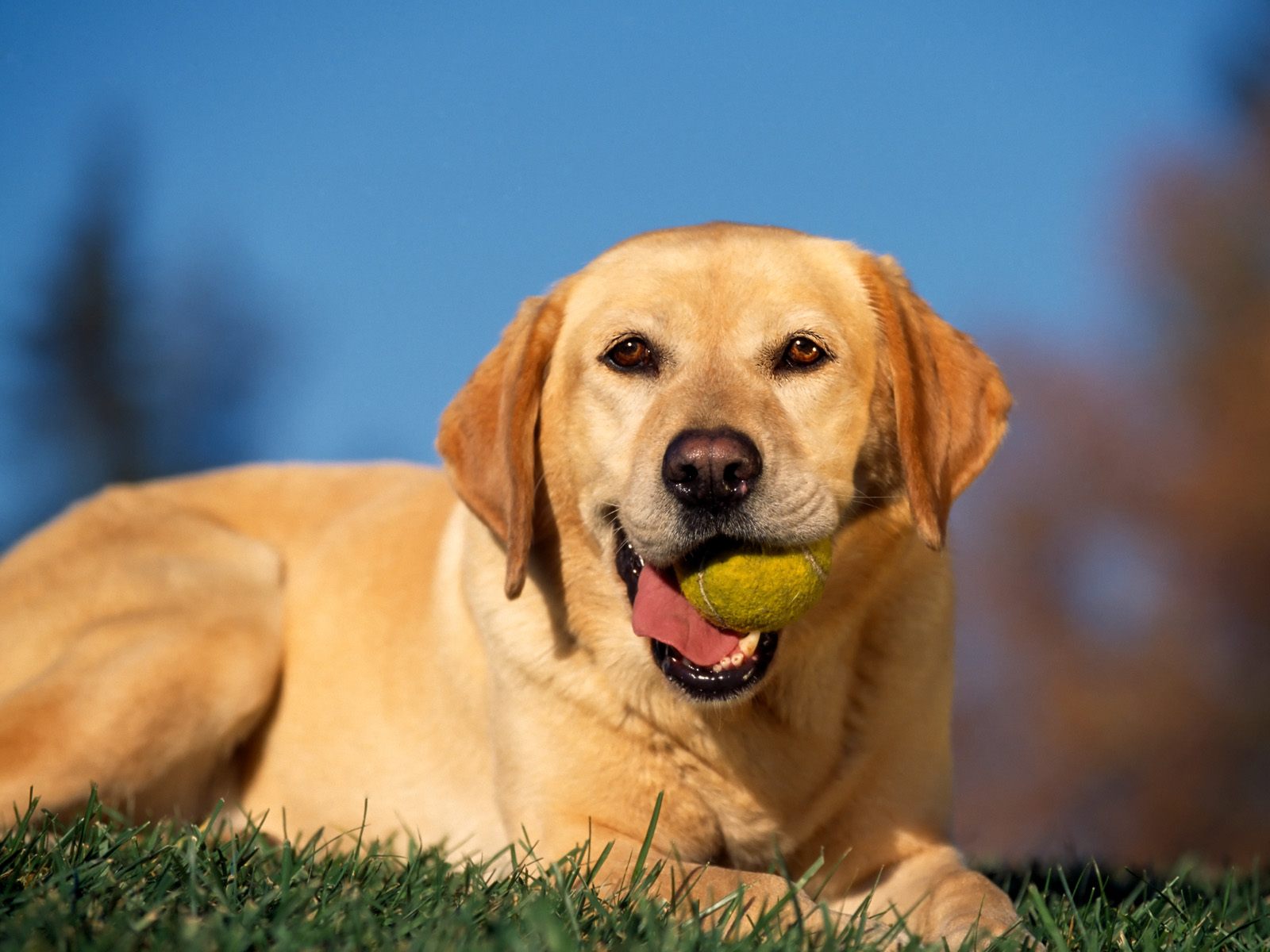Did you know that the Labrador Retriever, one of the world’s most beloved dog breeds, traces its roots back to the icy waters of Newfoundland, Canada?
Labrador Retriever, a breed renowned for its intelligence, loyalty, and versatility. Originally bred as “water dogs” to assist fishermen, these dogs have evolved into cherished family pets, skilled service animals, and top-notch hunting companions.
From their early days as St. John’s dogs to their rise in popularity across the globe, the Labrador Retriever’s journey is a testament to their adaptability and enduring appeal. Join us as we uncover the rich heritage of this remarkable breed and discover why Labradors continue to capture the hearts of dog lovers everywhere.
Table of Contents
Introduction
In this in-depth article, we look at many interesting Labrador Retriever history facts. This unique breed has had a fascinating history, from its start in Newfoundland, Canada, to its rise in popularity in so many different countries.
The Origins of the Labrador Retriever

Newfoundland’s Place in Labrador Retriever History
Let’s start with the Labrador Retriever history facts from its very beginning, their origin. Newfoundland is a place with rough landscapes and harsh climates. Because of how hard it is to live in Newfoundland, the breed had to be strong and adaptable so that it could survive and do well there.
The Labrador Retriever’s Early Ancestors
Their ancestors were water dogs that European fishermen brought to Newfoundland. One of the most important of the Labrador Retriever history facts is that these dogs are bred with local breeds, which is how their lineage started. Their ability to adapt, their intelligence, and their strong skills to retrieve set the stage for the Labrador original breed’s future success.
Dog Breeds that Shaped the Labrador’s Family Tree
Through their genes, many different breeds had a big impact on the origins of the Labrador Retriever. The Newfoundland, which is known for its size and ability to swim, gave the breed its strength and water-resistant hair. The smaller Lesser Newfoundland, which is a type of Newfoundland, gave them more agility and flexibility. Also, one of the interesting facts about Labrador Retriever history is that the English and Irish Setters gave them good qualities, like a good sense of smell and a calm personality.
The Water Dog of St. John
One of the most interesting of all the Labrador Retriever history facts is this one. The St. John’s Water Dog is a breed that no longer exists, but it might surprise you to learn that it was a key part of the origins of the Labrador Retriever. This water dog was known for its ability to swim and retrieve. Its swimming and catching skills were the basis for the breed’s great water skills. Its effects can still be seen in the way they love water and how good they are at swimming.
Newfoundland Fishermen

How Labrador and Newfoundland fishermen got together
Labrador Retrievers quickly became very popular with Newfoundland sailors because they were so good at catching fish and could handle the harsh conditions of the area. On fishing trips, these dogs proved to be very helpful, and they got a reputation for being reliable and tough.
The Labrador’s Work Capabilities
Labrador Retrievers were very important to Newfoundland fishers because they were strong, hardy, and had the instinct to find things. Their webbed feet and water-resistant coats made it easier for them to swim and find things in the water. This made them great at finding fish, nets, and other important items for the fishing business.
Retrieving and Water Skills
Labrador Retrievers were good at getting things out of the water, which made them perfect for getting fish, nets, and other important fishing gear out of the water. Fishermen found that their natural affinity for water and their ability to swim well were useful skills that helped them do their jobs well and quickly.
Growth In England and Original Breed’s Change
When Labradors First Came to England
Some reliable Labrador Retriever history facts say that they were first brought to England by British lords and sailors in the early 19th century. They quickly made the breed famous in England because of how well they worked and how friendly they were. This set the stage for the breed to continue to grow.
How the Earl of Malmesbury Shaped Labrador Retriever History
The Earl of Malmesbury was a big part of making the labrador dog breed origin better. He bred Labradors and started the Malmesbury type, which is known for its good qualities like a thick coat and good skills at retrieving. The Earl’s strong desire to improve the breed’s qualities was a key factor in its growth.
Getting Together with Other Retrievers
Interbreeding with other retriever breeds, like the Flat-Coated Retriever and the Chesapeake Bay Retriever, was used to make this breed. These attempts were made to improve certain traits and bring together the Labrador Retriever’s unique qualities, such as its intelligence, ability to retrieve, and ability to be trained.
How the Labrador Dog Breed Origin Standard Came to Be
At the beginning of the 20th century, the Labrador Retriever was given a breed standard by the Kennel Club. This standard told breeders what traits and characteristics they should look for in their dogs to keep the breed consistent and similar. The breed standard has been very important in making sure that responsible breeding methods are followed and that the breed’s unique qualities are kept.
Recognizability and Fame
The Kennel Club Recognizes the Labrador
This is a revolutionary one among all the Labrador Retriever history facts. In 1903, the Labrador Retriever was officially recognized as a separate breed by the Kennel Club. This made the dog’s position official and made it possible for it to take part in dog shows and competitions. This recognition made the labrador dog breed origin even more famous and gave them a chance to show off their great qualities.
Origins of the Labrador Retriever in the U.S.
During the early part of the 20th century, Labradors became very famous in the United States. They were quickly popular as family pets, working dogs, and show dogs because they were smart, polite, and good at many things. The breed was popular because it could adapt to different situations and was easy to train.
Labradors as family pets are becoming more popular
Labradors were great as family pets because they were nice and gentle, and they could adapt to new situations and be patient. Families who wanted a reliable and trustworthy pet liked that they were calm and loving and that they were naturally patient and tolerant. Labradors have always been one of the most popular types of dogs because they make great family pets.
Labradors in Popular Culture
Labradors have also made their mark on pop culture by showing up in movies, TV shows, and commercials. Because of how nice and approachable they look and how smart they are, they are often chosen to represent the ideal family dog. Their appearances in movies and TV shows have added to the labrador dog breed’s origin of fame and good name.

Today’s Labrador Retriever
Labrador Retriever Varieties
The American Labrador, the English Labrador, and the Canadian Labrador are the three most common types of Labrador Retrievers today, aside from the Labrador Retriever background facts. Even though these types may look and act a little bit differently, they all have the same basic traits of the Labrador original breed, like being smart, trainable, and friendly.
Health Issues and Things to Think About
Labradors are usually a healthy breed, but they can get hip and elbow dysplasia, be overweight, or have certain genetic diseases. Responsible breeders put health tests and screening at the top of their list of things to do. This keeps the breed healthy and happy in the long run.
The Labrador Retriever’s Personality and Traits
People like Labrador Retrievers because they are friendly, open, and eager to please. They are very friendly dogs who get along well with kids, other pets, and people. This makes them great family pets and therapy dogs. The fact that they are smart and easy to train makes them good for a wide range of jobs and hobbies.
Note: There might be affiliate links mentioned here. We may receive a commission if you purchase a product through an affiliate link. There is no additional charge for you. Please do your own research before making any online purchases.
The Labrador’s Adaptability and Ability to Work
Labrador Retrievers continue to show how well they work in many different areas. They are great as search-and-rescue dogs, guide dogs for people who are blind, therapy dogs, service dogs for people with disabilities, and competitors in dog sports and events. Their ability to do many things and change has made them essential in many work settings.
Notable Labrador Retriever Achievements

Labrador Retrievers in Competitions and Sports
Labrador Retrievers have been very helpful in many dog games and competitions. They do well in obedience trials, agility events, field trials, and dock diving because they are athletic, easy to train, and enthusiastic. Their amazing skills and a strong desire to please make them very good players in these areas.
Labradors Help Find and Save People
Labrador Retrievers are helpful in search and rescue efforts because they are smart, good at smelling, and want to bring things back. Their strong sense of smell and ability to keep going have helped find missing people and survivors after catastrophes and saved many lives. Labs are still very important to search and rescue teams all over the world.
Labradors as Service Dogs and Therapy Dogs
Labrador Retrievers are friendly and gentle, and they are smart and easy to train, so they make great therapy and service dogs. They help people in need, like those with physical disabilities, autism, or post-traumatic stress disorder, by giving them comfort, mental support, and practical help. Many people find comfort and healing in their company, which makes their lives better.
Caring For A Labrador Retriever
Needs for Exercise and Activity
Labradors are very active dogs that need a lot of exercise. To keep their minds and bodies active, they need to move their bodies every day by walking, running, or playing. Regular exercise keeps people from getting bored and acting out because they have too much energy.
Good Food and Nutrition
To stay healthy, Labradors need to eat food that is well-balanced and full of nutrients. Obesity and the health problems that come with it can be prevented by giving dogs high-quality food that meets their special nutritional needs, controlling the amount they eat, and not giving them too many treats. Talking to a vet can help you figure out what each Labrador should eat based on their age, how active they are, and their specific health needs.
Grooming Needs
Labradors have short, thick double coats that need to be brushed often to stay in good shape. Even though they don’t shed much, they should be bathed every so often to keep them clean and prevent smells. Some of the common tips for caring for a Labrador Retriever are routine grooming also includes trimming their nails, cleaning their ears, and taking care of their teeth.
Training and Getting to Know People
Labrador Retrievers do best with teaching methods that use positive reinforcement. It’s important to get them used to different people, animals, and surroundings early on so they can grow up to be well-rounded, obedient pets. Basic obedience training is important if you want to set limits and encourage good behavior.
How the Labrador Retriever Will Do in the Future
Keeping the Labrador Original Breed Alive
To make sure Labrador Retrievers will always exist and be healthy, it is important to use sensible breeding methods to keep the breed’s traits, health, and personality. Ethical breeders put health testing, genetic diversity, and supporting the breed standard at the top of their list to make sure their puppies are healthy and sound. Breeders can help keep the breed alive for the long run by sticking to these rules.
How the Origins of the Labrador Retriever have Affected Other Dogs
The labrador dog breed origin has a big impact on more than just its breed. Its qualities, like being smart, easy to train, and versatile, have been sought after and added to other breeds, helping to create new working and companion dog types. The Labrador Retriever’s history continues to change and improve the world of dogs as a whole.
Emerging Trends and Developments in Labradors
As our knowledge of genetics and dog health grows, the study is being done to find answers to and reduce breed-specific health problems in this breed. Genetic screening tests and improvements in medical ways of caring for a Labrador Retriever are ways to improve the health and well-being of the breed as a whole.
Labrador Retriever Breeds and Varieties
Labrador Retrievers are one of the most beloved dog breeds worldwide, known for their friendly nature, intelligence, and versatility. While they are often recognized for their three primary colors—black, yellow, and chocolate—there are several varieties within the breed, each with unique characteristics. This comprehensive guide explores the different types of Labrador Retrievers, including English, Silver, Golden, Fox Red, Yellow, Dudley, Gray, and other kinds.
English Labrador Retriever

Characteristics: The English Labrador Retriever, also known as the show or bench Labrador, is bred primarily for conformation shows and companionship. These dogs are typically stockier and more robust than their American counterparts, with a broader head, thicker neck, and a fuller chest. They have a dense, water-resistant double coat that comes in black, yellow, and chocolate.
Temperament: English Labradors are known for their calm and laid-back demeanor. They are friendly, sociable, and excellent with children and other pets. Their gentle nature makes them ideal family pets and therapy dogs.
Care Requirements: English Labradors require regular exercise to maintain their health and prevent obesity. Their thick coat needs regular grooming to manage shedding. They thrive on human interaction and do not do well if left alone for long periods.
Silver Labrador Retriever
Characteristics: Silver Labradors are a controversial and rare variation of the chocolate Labrador. Their unique silver-gray coat is the result of a recessive gene that dilutes the chocolate color. Despite the debate over their origins, Silver Labradors are recognized by the American Kennel Club (AKC) as chocolate Labradors.
Temperament: Silver Labradors share the same friendly, outgoing, and intelligent traits as other Labradors. They are energetic and require plenty of physical and mental stimulation. Their playful nature makes them great companions for active families.
Care Requirements: Silver Labradors need regular exercise to burn off their high energy levels. Their coat requires minimal grooming, but regular brushing helps manage shedding. They are prone to certain health issues, so regular vet check-ups are essential.
Golden Labrador Retriever

Characteristics: The Golden Labrador, also known as the Goldador, is a hybrid breed resulting from crossing a Golden Retriever with a Labrador Retriever. These dogs inherit the best traits from both parent breeds, making them excellent family pets. They typically have a light, honey-gold fur and a double coat.
Temperament: Golden Labradors are known for their friendly, affectionate, and loyal nature. They are highly intelligent and easy to train, making them suitable for various roles, including service and therapy dogs. Their sociable personality ensures they get along well with children and other pets.
Care Requirements: Golden Labradors require regular exercise to keep them healthy and happy. Their double coat needs regular grooming to prevent matting and tangling. They thrive on human interaction and do not do well if left alone for long periods.
Fox Red Labrador Retriever

Characteristics: The Fox Red Labrador is a darker shade of the yellow Labrador Retriever. This variation is not a separate breed but a color variation within the yellow Labradors. Fox Red Labradors have a striking reddish coat that resembles the color of a red fox.
Temperament: Fox Red Labradors are known for their intelligence, loyalty, and high energy levels. They are affectionate and responsive to training, making them excellent companions for active families. Their playful nature ensures they get along well with children and other pets.
Care Requirements: Fox Red Labradors need regular exercise to burn off their high energy levels. Their coat requires minimal grooming, but regular brushing helps manage shedding. They thrive on human interaction and do not do well if left alone for long periods.
Red Colored Labrador Retrievers
Characteristics: Red Colored Labrador Retrievers are essentially the same as Fox Red Labradors. They are a darker shade of yellow Labradors and have a striking reddish coat. This color variation is not officially recognized as a separate color by the AKC but is accepted as a variant of the yellow color class.
Temperament: Red Colored Labradors share the same friendly, intelligent, and energetic traits as other Labradors. They are affectionate and responsive to training, making them excellent companions for active families. Their playful nature ensures they get along well with children and other pets.
Care Requirements: Red Colored Labradors need regular exercise to keep them healthy and happy. Their coat requires minimal grooming, but regular brushing helps manage shedding. They thrive on human interaction and do not do well if left alone for long periods.
Yellow Labrador Retriever

Characteristics: Yellow Labradors are one of the three standard colors of the Labrador Retriever breed. Their coat color can range from a pale cream to a rich golden hue. Yellow Labradors are known for their friendly and outgoing nature, making them one of the most popular family pets.
Temperament: Yellow Labradors are friendly, sociable, and excellent with children and other pets. They are highly intelligent and easy to train, making them suitable for various roles, including service and therapy dogs. Their gentle nature makes them ideal family pets.
Care Requirements: Yellow Labradors require regular exercise to maintain their health and prevent obesity. Their coat needs regular grooming to manage shedding. They thrive on human interaction and do not do well if left alone for long periods.
Dudley Labrador Retriever

Characteristics: Dudley Labradors are a rare genetic variation of the yellow Labrador Retriever. They lack pigmentation on their nose, eye rims, and feet, resulting in a pink appearance. Dudley Labradors have pale-colored eyes, usually blue or teal.
Temperament: Dudley Labradors share the same friendly, intelligent, and energetic traits as other Labradors. They are affectionate and responsive to training, making them excellent companions for active families. Their playful nature ensures they get along well with children and other pets.
Care Requirements: Dudley Labradors need regular exercise to keep them healthy and happy. Their coat requires minimal grooming, but regular brushing helps manage shedding. They thrive on human interaction and do not do well if left alone for long periods.
Gray Labrador Retriever

Characteristics: Gray Labradors, often referred to as Silver Labradors, are a rare variation of the chocolate Labrador. Their unique gray coat is the result of a recessive gene that dilutes the chocolate color. Despite the debate over their origins, Gray Labradors are recognized by the AKC as chocolate Labradors.
Temperament: Gray Labradors share the same friendly, outgoing, and intelligent traits as other Labradors. They are energetic and require plenty of physical and mental stimulation. Their playful nature makes them great companions for active families.
Care Requirements: Gray Labradors need regular exercise to burn off their high energy levels. Their coat requires minimal grooming, but regular brushing helps manage shedding. They are prone to certain health issues, so regular vet check-ups are essential.
Other Kinds of Labrador Retriever

American Labrador Retriever: American Labradors, also known as field or working Labradors, are bred primarily for hunting and field trials. They are typically leaner and more athletic than their English counterparts, with a finer coat and a higher energy level. American Labradors are known for their intelligence, determination, and strong work ethic. They require regular exercise and mental stimulation to keep them happy and healthy.
Chocolate Labrador Retriever: Chocolate Labradors are one of the three standard colors of the Labrador Retriever breed. They have a rich, chocolate-brown coat and share the same friendly, intelligent, and energetic traits as other Labradors. Chocolate Labradors are affectionate and responsive to training, making them excellent companions for active families. Their coat requires minimal grooming, but regular brushing helps manage shedding.
Black Labrador Retriever: Black Labradors are another standard color of the Labrador Retriever breed. They have a sleek, black coat and are known for their friendly, outgoing, and intelligent nature. Black Labradors are highly trainable and excel in various roles, including service and therapy dogs. Their coat requires minimal grooming, but regular brushing helps manage shedding.
White Labrador Retriever: White Labradors are a rare variation of the yellow Labrador Retriever. They have a pale, almost white coat and share the same friendly, intelligent, and energetic traits as other Labradors. White Labradors are affectionate and responsive to training, making them excellent companions for active families. Their coat requires minimal grooming, but regular brushing helps manage shedding.
Dual-Purpose Labradors: Dual-purpose Labradors are bred to excel both in the show ring and in the field. These dogs have a balanced build, combining the robust physique of the English Labrador with the athleticism of the American Labrador. Dual-purpose Labradors are versatile and can perform well in various roles, including hunting, field trials, and conformation shows. They require regular exercise and mental stimulation to keep them happy and health.
Conclusion
The fact that they came from Newfoundland and are now popular family pets and versatile working dogs is a sign of their great traits and lasting appeal. They are still beloved pets, reliable working partner, and the Labrador Retriever’s history is evidence that this breed has left a lasting mark on the world of dogs because they are smart, easy to train, friendly, and good at their job.
FAQs
Explain the origins of the Labrador Retriever.
The Labrador Retriever has a long past that goes back to Canada’s Newfoundland, where it was first bred. It was bred to work hard and do a lot of different jobs to help Newfoundland fishers. The breed is descended from water dogs that European fishermen took with them and bred with local breeds. The Labrador Retriever comes from dogs like the Newfoundland, the Lesser Newfoundland, the English Setter, and the Irish Setter.
What work skills does the Labrador Retriever have?
Labrador Retrievers have great working skills that make them very popular in many different areas. They are good at getting things out of the water, which makes them useful for fishing. They are a fisherman’s best friend because they are strong, can last a long time, and know how to find fish. Labradors are also known for how good they are at search and rescue, as therapy and assistance dogs, and in dog games and competitions.
Why did Labrador Retrievers become so popular?
Labrador Retriever’s history is evidence that they became famous because they are smart, friendly, and good as family pets. Because they are smart, friendly, and gentle, they make great pets for both people and families. Their ability to change and their patience also make them popular as family pets. Labradors’ popularity has grown even more thanks to their roles in movies and TV shows, as well as their popularity at dog shows.
How many different kinds of Labrador Retrievers are there?
Three types of Labrador Retrievers are well-known: the American Labrador, the English Labrador, and the Canadian Labrador. Even though they are all nice and able to work, they may look and act a little bit differently. Standards for breeds and personal tastes can change from country to country or region to region.
What are Labrador Retrievers’ most common health problems?
Labrador Retrievers are usually healthy dogs, but they may be more likely to get sick than other breeds. Hip and elbow dysplasia, being overweight, and some genetic conditions are all common health issues. Responsible breeders put health tests and screening at the top of their list of priorities so that these conditions happen less often. Labrador Retrievers can stay healthy and happy by going to the vet regularly, eating a balanced diet, and getting plenty of exercise.
What do Labrador Retrievers need in terms of grooming?
The Labrador dog breed has short, thick double coats that need to be brushed regularly to stay in good shape. They don’t shed too much, and giving them baths once in a while keeps them clean and keeps smells away. Routine grooming also includes cutting the nails, cleaning the ears, and taking care of the teeth. Talking to a vet or professional groomer can help you figure out how caring for a Labrador Retriever’s special grooming needs is done.
How do you train and educate a Labrador Retriever?
Labrador Retrievers do well with teaching methods that use positive reinforcement. It’s important to get them used to different people, animals, and surroundings when they’re young so they can grow up to be well-rounded, obedient pets. Basic manners training teaches the dog what is expected of him and reinforces good behavior. Both the dog and the owner can benefit from professional training or obedience lessons.
How can I make sure a Labrador Retriever is healthy?
Caring for a Labrador Retriever is important. Several things should be thought about to make sure they are healthy. It is important to give them regular exercise and mental activity to keep them from getting bored and to keep their physical and mental health in good shape. Obesity and the health issues that come with it can be avoided by eating a healthy, well-balanced diet, watching portion sizes, and avoiding too many treats. Regular medical care, like checkups and vaccinations, is important for keeping an eye on the dog’s health and taking care of any problems right away. To make sure the dog is happy and healthy in general, grooming, training, and socializing should also be top priorities.
Can Labrador Retrievers live in small places like flats?
Labrador Retrievers are active dogs that need a lot of room and exercise to do well. Even though they can get used to living in apartments or smaller areas, it is important to make sure they get the exercise they need every day by taking walks, going for runs, or playing. Having access to open areas, like parks or places where dogs are welcome, helps get more exercise. Labrador Retriever owners should make sure their dogs get enough exercise to keep them from acting out because they have too much energy.
Do Labrador Retrievers do well in homes with kids and other pets?
Labrador Retrievers are known for being kind and friendly, which makes them great pets for homes with kids and other animals. They are usually calm and forgiving, and their friendly nature lets them get along well with kids and other animals when they are raised that way. But it’s important to keep an eye on young children and dogs when they’re together and teach kids how to behave around dogs to keep everyone safe and happy.
How long can Labrador Retrievers be left alone?
Labrador Retrievers are friendly dogs that need other people to be happy. When you leave them alone for long amounts of time, it can lead to boredom, anxiety, and bad behavior. Dogs need mental activity, like puzzle toys or interactive feeders, to keep them busy when their owners have to be gone for longer periods. To make sure the dog is happy and healthy, you should also think about getting a dog walker or setting up a daycare where great caring for a Labrador Retriever is done.
What is the average lifespan of a Labrador Retriever?
Labrador Retrievers live for about 10 to 12 years on average. But people’s lifespans can be different based on things like their genes, diet, exercise, and general health care. A Labrador Retriever’s longevity and quality of life can be improved by giving it a healthy diet, regular exercise, regular veterinary care, and loving and stimulating surroundings.












